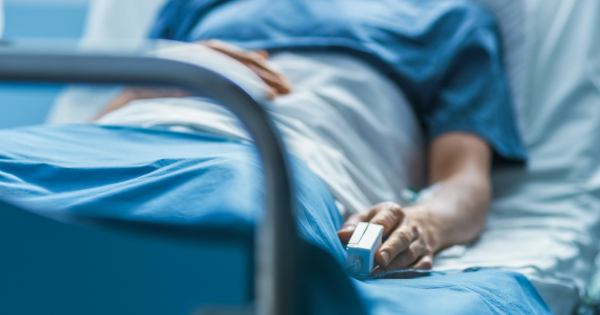Everyone going through surgery wishes to heal quickly and bounce back to life in the shortest time possible. However, the recovery period will depend on the type of surgery you’ve had, as well as your health record. Dr. Andrew Jacono, MD, FACS, also notes that proper post-surgery care is a key to faster recovery.
Post-operative care begins as soon as you leave the theater. It continues during your hospital admission and at home after you are discharged. It is crucial to discuss your recovery plan with your surgeon before leaving the hospital. Ensure you’ve gathered all the necessary details to help you in the recovery journey. Also, ask about potential complications and side effects of your procedure.
This article provides valuable post-operative recovery tips that will speed up the recovery process.

Recovery Plan and Support System
It’s essential to plan your recovery process ahead of time. Put everything in order before surgery to ensure a smooth recovery. The first thing you need to do is acquire a wound care kit, which should include ointments, tape, bandages, and everything else you’ll need to dress your wound. It would also help to go shopping and stock up groceries and supplies you need in the home.
Doing simple house chores is nearly impossible after surgery. After all, you should rest as much as possible to avoid interfering with the stitches. You might want to hire a person to help you with the chores as well as taking care of your children.
It’s essential to find support during this time and not be afraid to ask for it. You might be surprised at how your spouse, family, relatives, and co-workers can be willing to offer a helping hand at such a time. They will help manage your daily activities and dress the wound if you cannot do it yourself.
Care for the Incision
Every incision has a unique care formula. Your surgeon will give you specific wound care instructions when discharging you from the hospital. Follow these instructions to the letter. Be sure to use the dressings given by your surgeon and change them as often as you have been instructed.
When cleaning the incision, do it gently with mild soap and warm water. Drains may be used on the incision to avoid fluid buildup and swelling. Always handle the drains with clean hands and empty them when they get half-filled to prevent infections.
It is advisable to look out for signs of infection in the incision. If you notice any of these signs, you should contact your surgeon immediately:
- Foul odor from the drains
- Opening of the incision
- Excess pain
- Swelling that is not subsiding
- Excess redness
- Fever
- Pus drainage from the incision

Proper Nutrition
It is natural to lose appetite after having surgery. Sometimes you’ll be constipated or nauseated. But, it is crucial to eat a balanced diet and drink plenty of water at this time. It will eliminate the undesirable effects of anesthesia, minimize complications, and promote healing. Avoid processed foods that are full of additives, salt, fat, sugar, and food dyes. Instead, eat many fruits and vegetables since they contain the micronutrients and phytonutrients necessary for healing.
Lean proteins such as beans, eggs, and fish will aid in healing the wound quickly. You still need carbohydrates for your energy but don’t overdo them to avoid constipation. Water is the most effective option for rehydration in the post-recovery phase. Drinking plenty of it will help keep your gut in top shape, flush your kidneys, reduce the risk of developing blood clots, and deliver essential nutrients to your body cells.
Physical Exercise
This doesn’t imply running a marathon or going to the gym. In fact, you should stop your gym sessions until you are fully recovered. However, some simple exercises can hasten your recovery. Depending on the surgery you undergo, your surgeon will recommend the right kind of exercise to do. Be sure to ask when it is safe to start physical activity.
In many cases, walking is the safest exercise for post-surgery patients. You can begin with a five-minute walk and increase the time as healing continues. You may also try leg, arm, and ankle stretches to keep your joints healthy. Exercise boosts blood circulation, breathing, and digestion. It also prevents or averts the formation of blood clots, which is a common complication after surgery.
Pain Management
Post-surgery pain can be debilitating. To remedy this pain, your surgeon will prescribe pain medication. However, this medication is often short-term and is prescribed for three to seven days after surgery. Prolonged use is prohibited since some pain medicines interfere with bowel function. Overusing some pain management medication can also lead to addiction. Therefore, your surest bet in managing pain after surgery is resting. Rest ensures little disturbance to the incision, which means less pain.
Rest
Any surgery, even if it’s non-invasive, produces significant stress to the mind and body. Your body requires a lot of energy to heal. Resting ensures that most of your body’s energy is being expended in healing the incision and not lost in other activities. Maximum rest is essential during the first few hours of surgery. At this time, you are still experiencing anesthetic effects, and resting is the best way to evade this effect. Besides that, the best pain remedy after surgery is the rest.
Follow-Up Appointments
You are likely to forget or ignore follow-up appointments when the healing has already taken place. This is natural, but you shouldn’t fall for it. Post-surgery follow-up appointments are essential for several reasons. First, your surgeon will assess the incision to determine whether it has healed correctly. Also, they will replenish your medicines or adjust the dosage during the appointment. Also, they will conduct examinations to look for signs of infections and treat them accordingly.
Healing from a surgical procedure doesn’t have to be complicated. These tips will help you in the recovery process. But, more importantly, stay positive and focused on your recuperation. Positive emotions help a lot in the healing process.
 Kaboutjie SA Mommy Blogs by Lynne Huysamen
Kaboutjie SA Mommy Blogs by Lynne Huysamen





Wow awesome tips thanks.
Me myself never give my body time to heal. Always just thinking of what must be done. But it’s not good for your healing process.
Awesome blog thanks.